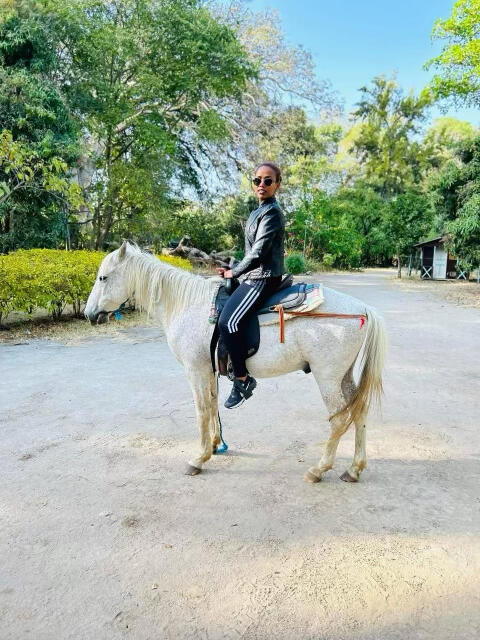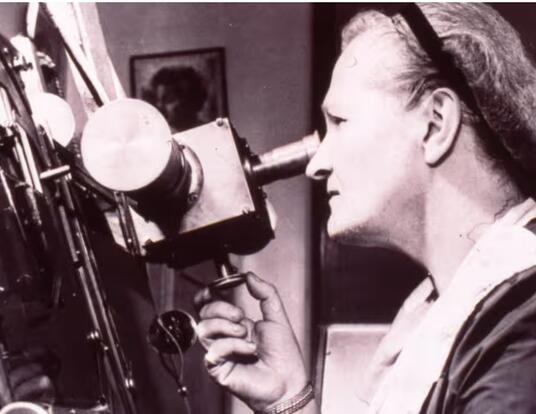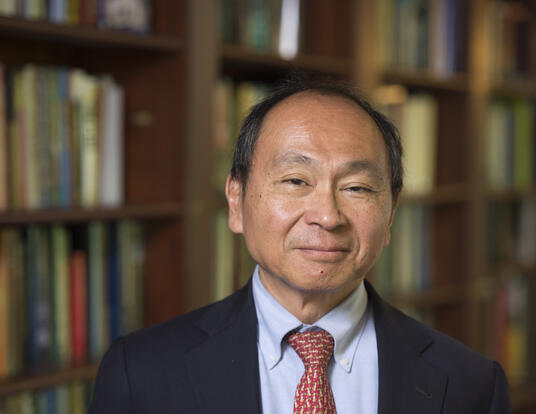Countering Cancer’s Mutations
Kidist Ashami, PhD candidate
Research at Risk: Since World War II, universities have worked with the federal government to create an innovation ecosystem that has yielded life-changing progress. Now much of that work may be halted as funding is withdrawn. Find out more about the threats to medical, engineering, and scientific research, as well as how Harvard is fighting to preserve this work—and the University's core values.
Kidist Ashami is a PhD student in Harvard Griffin GSAS’s Biological and Biomedical Sciences Program, where she searches for ways to treat mutant strains of cancer. Ashami talks about her journey from Ethiopia to Harvard, her research on therapies for colorectal cancer, and the honor of being a recipient of the 2023 Paul & Daisy Soros Fellowships for New Americans.
Asylum and Education

When I was seventeen, I participated in a yearlong exchange program in the United States. Although coming to the US was terrifying, I hoped it would provide me with an opportunity for a world-class education. So, I left everything behind in Ethiopia and embarked on the journey.
At the end of the year, I took a big leap of faith by applying for political asylum rather than going back home. I was unable to afford an immigration lawyer with my salary as a waitress, and I found the application process to be extremely challenging. I taught myself how to write my asylum case on a borrowed laptop using the internet as a guide, and I was granted asylum, which enabled me to continue my high school education.
After graduating from high school, I earned a full-tuition scholarship to Berea College, whose unique work-study program not only provided me with academic training but also equipped me with practical career-planning skills. I was privileged to have mentors who offered me invaluable guidance and advice to help me achieve my personal and academic aspirations. Berea also gave me the opportunity for summer internships that introduced me to the basics of conducting biomedical research. I discovered I had a passion for the work, and I participated in other programs at Washington University in St. Louis and the University of Southern California. Those experiences opened my eyes to how small changes at the molecular level can impact complex diseases like cancer, taught me basic concepts and techniques in immunology, and prepared me for the intellectual and practical challenges of graduate school.
For my graduate training, I decided to join the Harvard Kenneth C. Griffin Graduate School of Arts and Sciences because the Biological and Biomedical Sciences Program emphasized molding students into well-trained researchers through a flexible curriculum and high-caliber research. I also wanted to be in an environment that is safe, welcoming, and empowering so a person and a scientist like me can thrive.
Investigating Immunity
My PhD research aims to understand the interaction between colorectal cancer (CRC) and the immune system for the development of more effective therapeutic approaches. CRC is one of the most diagnosed cancers, ranking in the top three for both incidence of cases and cancer-related death worldwide. About 40 percent of CRC patients have a specific genetic mutation at the Kirsten rat sarcoma viral oncogene (KRAS), which makes a protein involved in cell signaling pathways that control cell growth and proliferation. KRAS is the most common gene mutation linked to cancer. Currently, the mutation of the KRAS gene in CRC is associated with resistance to all FDA-approved conventional and targeted therapies making it the greatest barrier to medical treatment for CRC.

Recently, researchers have discovered that immune checkpoint blockade therapies—treatments that help the immune system fight cancer—can be very effective for some types, such as lung cancer and melanoma. Nevertheless, responses to immune checkpoint therapies in CRC are limited to patients with a specific type of tumor that accounts for less than 15 percent of cases.
My research aims to better understand how the immune system and cancer cells interact in KRAS mutant CRC. By doing this, I hope to identify which immune cells and pathways are involved in the progression of the disease to design rational immunotherapies and more effective treatments.
Pathway to Proficiency
The Paul & Daisy Soros Fellowships for New Americans not only acknowledge my academic accomplishments but also celebrate my immigrant journey, which is an integral part of my identity. It offers me a pathway to proficiency in research, mentorship, and leadership and provides valuable resources for engagement inside and outside of the Harvard community. The fellowship will enable me to connect with fellow immigrants and children of immigrants, establishing an indispensable network of support for my graduate work and beyond.
I am immensely grateful and honored to be a part of this outstanding community. I am committed to fulfilling the expectations that come with the award and I recognize the honor—and responsibility—that come with being a New American.
Get the Latest Updates
Join Our Newsletter
Subscribe to Colloquy Podcast
Simplecast





